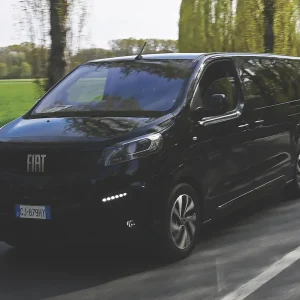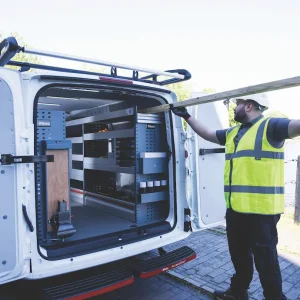Having entered the LCV market in September 2017 with the front-wheel drive version of its TGE – the large van that is built upon the same platform as its parent company Volkswagen’s Crafter– MAN is now broadening its range with the addition of rear- and all-wheel drive models as well as a selection of core tipper, dropside and Luton conversions.
At a driving event the manufacturer held recently, a representative of the franchise told What Van? the brand was targeting sales of 5,000 units a year by 2020.
By launching a light commercial vehicle, MAN, which is long established as an HGV manufacturer with trucks weighing up to 55.0t, aims to become a one-stop-shop for fleets running commercial vehicles of all sizes.
It is confident this strategy will appeal to operators through simplifying their fleet purchasing policies, and UK managing director Thomas Hemmerich says: “Now we don’t send customers to the competition.”
A fleet manager for a major builders’ merchant remarked to What Van?, however, that through putting all their eggs in one basket, businesses could run into difficulties in the event of a recall, for example, through having no alternative source to quickly find replacement vehicles – a reason why some companies prefer to run more than one marque in their fleets.
When it comes to the TGE, MAN’s approach differs to that of Volkswagen with the Crafter in that it does not offer trim levels but allows customers to choose from an extensive options list to specify the van to their requirements.
Up for grabs are electronic driver aids such as adaptive cruise control, lane-keep assist, traffic sign recognition, park assist and trailer assist, as well as extras such as touchscreen satnav, ergoComfort suspended seats, heated seats, climate control, a rear camera and side sensors.
The manufacturer offers a two-year ‘Uptime Guarantee’ to keep operators on the road with replacement vehicles when their vans go into the workshop.
This is extended for one year each year thereafter so long as the customer returns for servicing on an annual basis.
The TGE comes with a three-year, unlimited mileage warranty, compared to VW’s provision of three years and unlimited miles with the Crafter.
It is on its servicing proposition that MAN is pinning its hopes of establishing the TGE in the large van sector. Through its existing HGV network, it claims to be able to offer 65 service points nationwide that are open for 16 and a half hours a day, six days a week.

About town
MAN’s boss Joachim Drees believes the automotive industry is entering “the most exciting time since we replaced horse-drawn carriages with vehicles”.
But he acknowledges relentless urbanisation of the world’s population presents a major challenge.
“By 2050 the urban population will double,” he claims, “and goods transport is already pushed to the limits.”
With gridlock increasingly common, Drees adds: “Cities have to be careful they don’t suffocate themselves with their own success.”
He says the growth of e-commerce has changed the way people shop and that the demand for “same-day delivery clogs up the system” in what he describes as the “now economy”.
Low-emission zones (LEZs) are putting further pressure on urban operators, and Drees says MAN is seeking a sustainable model for the transport of goods and people.
“We want to move away from being a pure manufacturer to provide sustainable transport solutions,” he explains.
UK MD Thomas Hemmerich points out some challenges particular to the UK market. When it comes to the imposition of LEZs he says: “Every big city has a different agenda. This is not like the rest of Europe where there is a national approach.”
As for the possible economic impact of Brexit, he admits: “We get hugely nervous,” but adds: “We are amazed at the resilience of the market.”
An electric TGE will arrive in the UK within two years and Hemmerich admits it is a market the brand is desperate to get into with both vans and minibuses, as he foresees a future when cities could be closed to all but electric vehicles.





